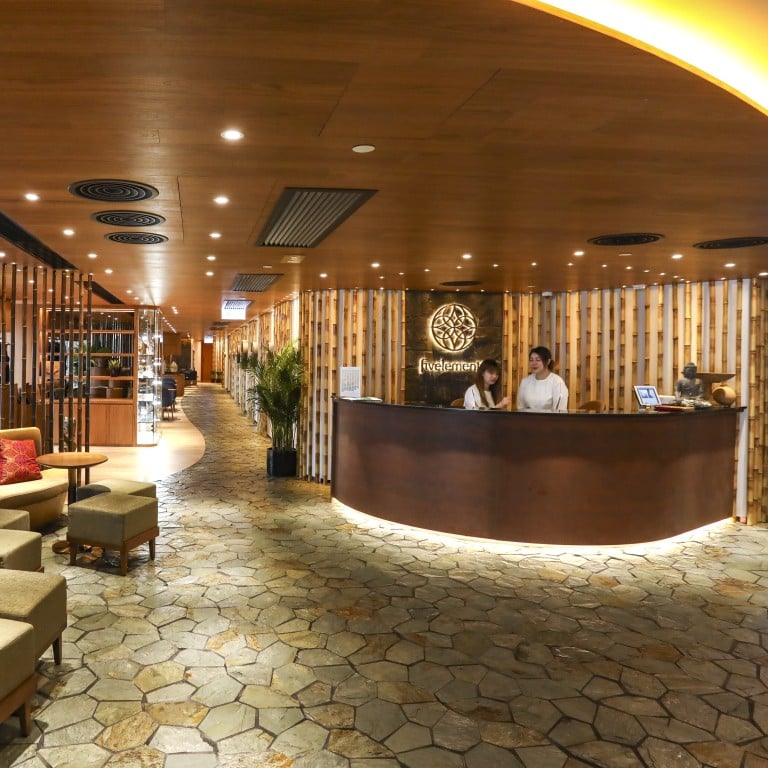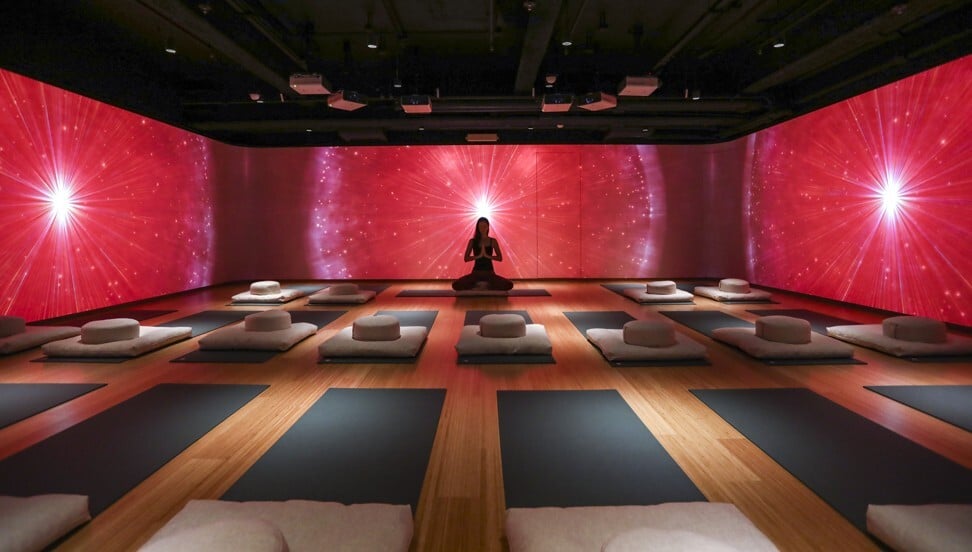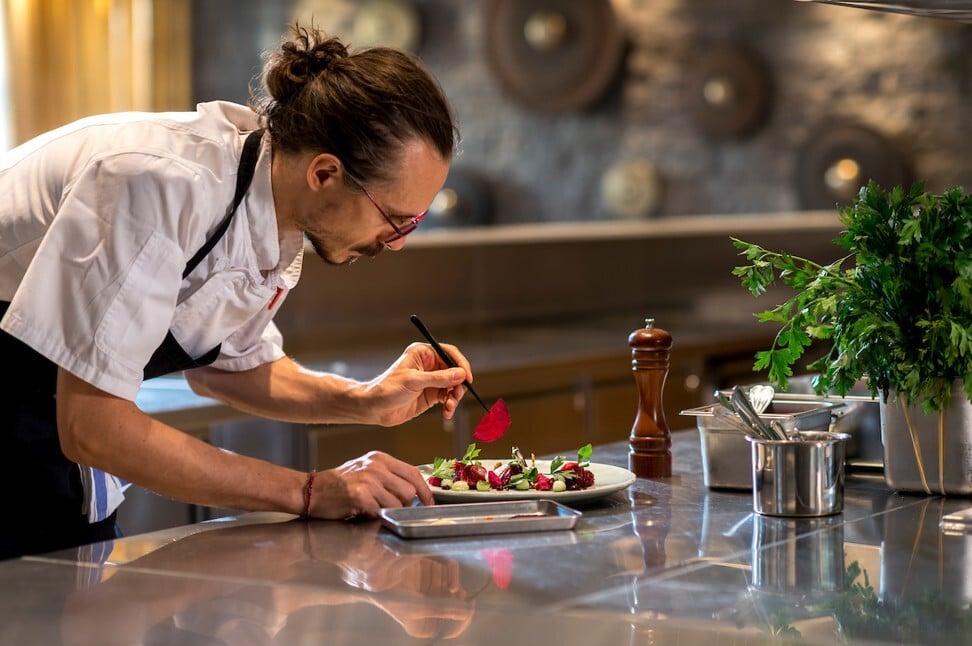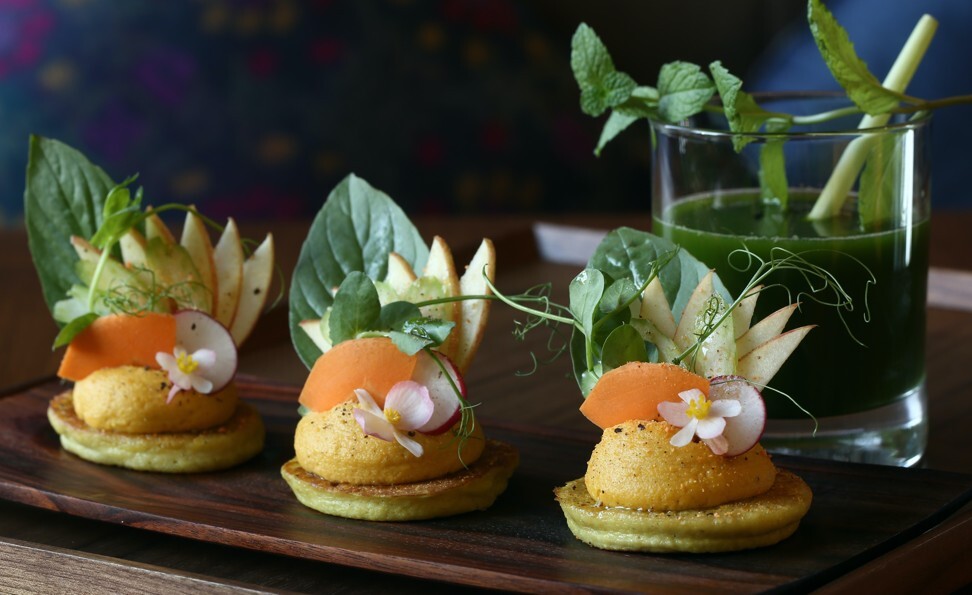
Fivelements to shut Times Square spa amid quibbles over rent, as uncertainties of Hong Kong’s recovery stymies businesses
- Fivelements Habitat’s wellness centre on level 13A of Times Square’s Tower One will cease operating at 6pm on September 30, according to a notice
- The wellness centre, measuring 15,000 sq ft, is estimated to cost HK$975,000 in monthly rent
Fivelements Habitat, which provides yoga sessions, spa treatments and plant-based cuisine, is shutting its Times Square wellness centre in Causeway Bay after two years of operation, as it failed to reach an agreement with landlord Wharf Reic on the terms of its lease renewal.
The centre, located on level 13A of Times Square’s Tower One, will cease operating at 6pm on September 30, ahead of the expiry of its lease in December, according to a notice to customers.
“We were reaching an inflection point where we’re required to commit to a further lease term and we were not able to reach an economically viable agreement with the landlord,” said Jason Washbourne, managing director of Fivelements’ owner Evolution Wellness Hong Kong in an email interview with the South China Morning Post.

The boom may be fleeting, as spending disappeared as soon as the first vouchers were used up, said the Hong Kong Retail Management Association, which represents more than 9,000 retail outlets that employ half of the city’s retail workforce. Sales in August were still 80 per cent lower than the peak in 2018, and consumption in September may decline further until the second instalment of vouchers is distributed, according to estimates by the guild.
That has translated into uncertainties about where retail rents are headed, as many commercial leases are still bound by contractual terms set at the depth of Hong Kong’s economic slump. Average rent across Hong Kong’s shopping centres fell 10.2 per cent in the second quarter from last year, down 45.2 per cent from the peak in 2018, according to data provided by Savills.
“While retailers have regained confidence, premises with corner and extensive shop frontage, high headroom or with provisions for operating restaurants will see a 5 to 10 per cent increase in rents compared to last year,” said Martin Wong, head of research and consultancy in Greater China at Knight Frank.

While some businesses have bounced back, others are still struggling to recover their lost revenue as many customers continue to stay home.
“We are saddened that after two years of business disruptions, we have not been able to reach a workable agreement with the landlord,” said Washbourne. “It’s both sad and perhaps ironic that we face these challenges in a city that has been through so much, and where there is so much to be gained at the community level with a brand like Fivelements.”

Fivelements operates a retreat in Bali, and a wellness centre in Hong Kong measuring 15,000 sq ft (1,393 square metres). The monthly rent for Times Square’s Tower One ranges from HK$53 to HK$58 per square foot, according to Colliers International’s head of valuation and advisory services Hannah Jeong. The rate was even higher two years ago at HK$60 to HK$65, which would translate to HK$975,000 per month for a business of Fivelements’ size. Washbourne declined to divulge the centre’s rent or say how many customers it has.
Fivelements is “currently seeking alternative space” to continue its business of providing yoga, soundscape and tea meditation in Hong Kong, he said.
“The team is actively pursuing options and we are hopeful that we will find a way to maintain this great community,” Washbourne said.

Some customers are already lamenting the imminent closure.
“It is very unfortunate that the two parties cannot come to an agreement,” said Jocelyn Tam, who practises yoga at Fivelements, adding that the facility was a “calm oasis amid the hustle and hysteria” of Hong Kong.
The company “invested a lot of money decorating and setting up this sanctuary,” she noted, but the government’s restrictions to prevent the spread of Covid-19 have “taken a toll on the membership.”
“It is difficult to maintain or develop good physical and mental habits if there are intermittent interruptions caused by the closure of the premises,” she said.

